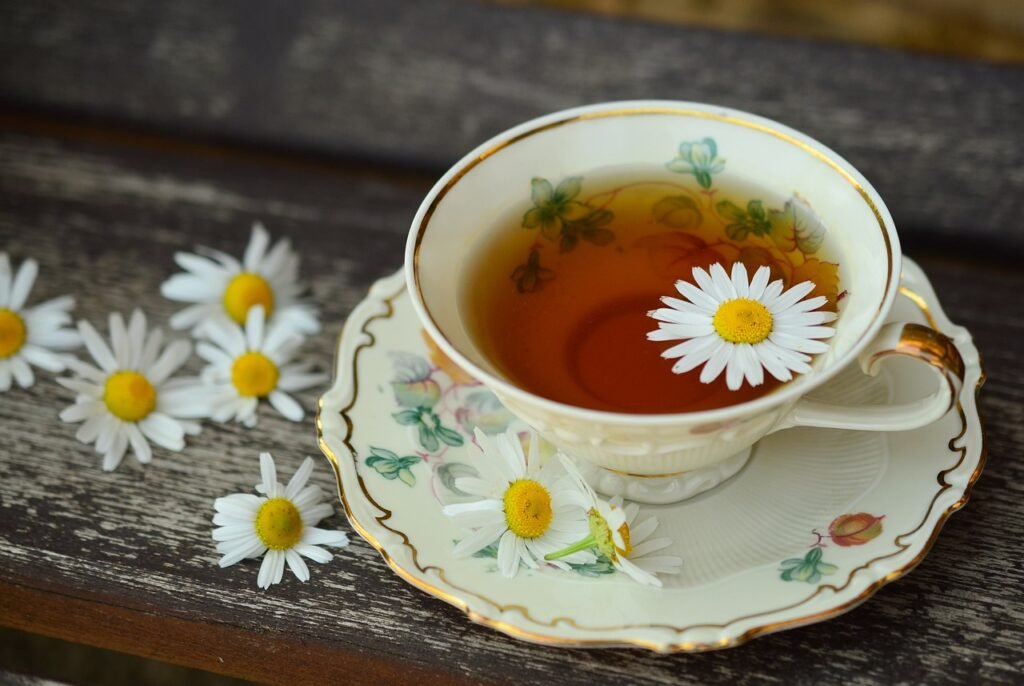In a world filled with hustle and bustle, finding restful sleep can often feel like an elusive dream. Insomnia, characterized by difficulty falling asleep or staying asleep, affects millions of individuals worldwide, leading to daytime fatigue, impaired cognitive function, and reduced quality of life. While there’s no magic cure for insomnia, many people turn to tea as a natural and gentle remedy for promoting relaxation and improving sleep quality. Join us as we delve into the science behind tea’s calming effects on insomnia and uncover the soothing rituals that make tea a cherished ally in the quest for restful slumber.
Understanding Insomnia:
Insomnia is a common sleep disorder characterized by difficulty falling asleep, staying asleep, or experiencing restful sleep despite adequate opportunity for rest. While occasional bouts of insomnia are normal and often tied to stress, anxiety, or lifestyle factors, chronic insomnia can have a significant impact on overall health and well-being. Factors contributing to insomnia may include stress, anxiety, depression, caffeine consumption, irregular sleep schedules, and poor sleep hygiene.
The Role of Tea in Promoting Sleep:
Tea has long been valued for its calming properties and ability to promote relaxation, making it a popular choice for those seeking relief from insomnia. Several components found in tea, including L-theanine, polyphenols, and flavonoids, have been shown to have sedative and anxiolytic effects that can help ease stress and promote restful sleep. Additionally, the ritual of preparing and sipping tea can serve as a soothing bedtime routine, signaling to the body that it’s time to unwind and prepare for sleep.

Types of Tea for Insomnia:
While many types of tea offer relaxation benefits, certain varieties are particularly well-suited for promoting sleep and alleviating insomnia. Here are some teas to consider incorporating into your bedtime routine:
1. Chamomile Tea: Chamomile tea is renowned for its calming properties and gentle sedative effects, making it an ideal choice for promoting relaxation and improving sleep quality. Chamomile contains compounds that bind to receptors in the brain and nervous system, helping to reduce anxiety and induce feelings of calmness and tranquility.
2. Valerian Root Tea: Valerian root has been used for centuries as a natural remedy for insomnia and sleep disorders. Valerian root tea contains compounds that increase levels of gamma-aminobutyric acid (GABA) in the brain, a neurotransmitter that promotes relaxation and sleep. Drinking valerian root tea before bedtime may help improve sleep latency and duration.
3. Lavender Tea: Lavender tea is prized for its soothing aroma and calming effects on the nervous system. Lavender contains compounds such as linalool and linalyl acetate, which have been shown to have sedative properties and promote relaxation. Sipping on lavender tea before bed can help ease stress and anxiety, paving the way for restful sleep.
4. Herbal Blends: Many herbal blends designed specifically for promoting sleep combine ingredients such as chamomile, valerian root, lavender, passionflower, and lemon balm. These teas often contain a synergistic blend of herbs that work together to promote relaxation and improve sleep quality. Experiment with different blends to find the combination that works best for you.
Incorporating Tea into Your Bedtime Routine:
To maximize the sleep-promoting benefits of tea, consider incorporating it into your bedtime routine in the following ways:
1. Set the Stage: Create a calming bedtime environment by dimming the lights, turning off electronic devices, and engaging in relaxing activities such as reading or gentle stretching.
2. Brew a Cup: Choose a soothing tea that promotes relaxation, such as chamomile, valerian root, or lavender, and brew a cup using hot water. Allow the tea to steep for several minutes to extract its full flavor and benefits.
3. Sip Mindfully: Savor each sip of tea mindfully, paying attention to the aroma, flavor, and sensations as you drink. Take slow, deep breaths and allow yourself to fully unwind and relax.
4. Enjoy a Ritual: Incorporate tea-drinking into your bedtime ritual as a signal to your body that it’s time to wind down and prepare for sleep. Establishing a consistent bedtime routine can help improve sleep quality and regulate your body’s internal clock.

Tea’s soothing effects on insomnia make it a valuable ally in the quest for restful sleep. Whether enjoyed alone or as part of a bedtime ritual, tea offers a natural and gentle remedy for promoting relaxation, easing stress, and improving sleep quality. By incorporating sleep-promoting teas such as chamomile, valerian root, and lavender into your nightly routine, you can create a tranquil oasis of calmness and serenity that sets the stage for restorative sleep. So why not brew yourself a cup of tea, settle in, and let the soothing embrace of tea guide you into a peaceful night’s slumber? With each sip, you’ll be nurturing your body and mind, one sip at a time. Cheers to the restorative power of tea and the sweet dreams that await!
